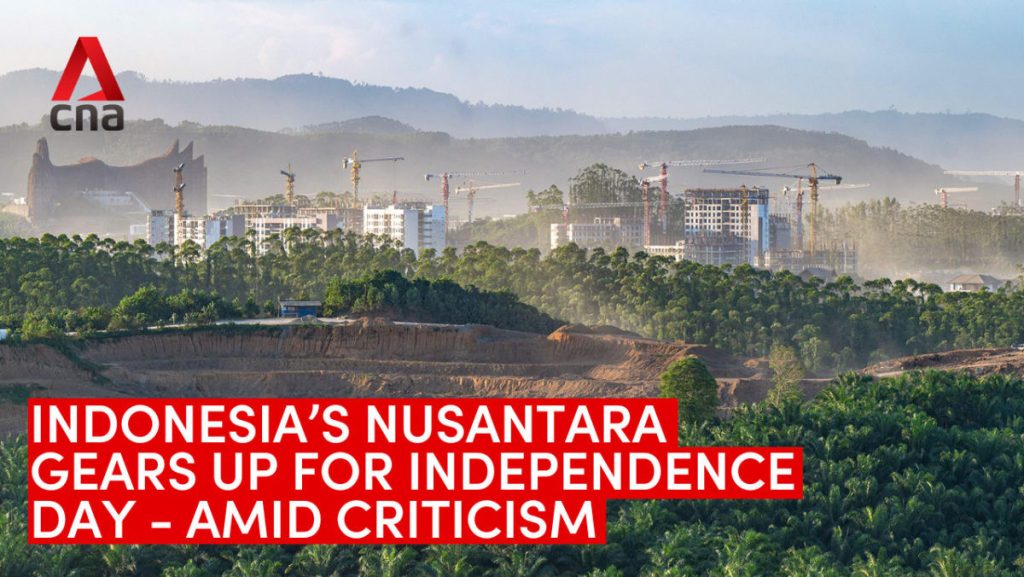As Indonesia prepares to celebrate its Independence Day in the new capital of Nusantara, there are growing concerns among residents about the inclusivity and benefits of the project. While the presidential palace is ready for the celebrations, some members of the community feel left out of the process. These concerns extend to worries about whether Nusantara will truly benefit the entire population or if it will serve as a symbol of elitism.
The new capital city of Nusantara is a massive project that has been in the works for several years. The government’s decision to move the capital from Jakarta to a new location was driven by the need to alleviate pressure on the overcrowded and sinking city of Jakarta. However, as the new capital begins to take shape, questions have been raised about how the project will impact the lives of everyday Indonesians. Will it provide opportunities for economic growth and improved living conditions for all, or will it primarily benefit the wealthy and powerful?
One of the main concerns among residents is the perceived lack of inclusivity in the planning and development of Nusantara. Many feel that the project is being driven by the elites and that their voices are not being heard. This raises questions about who will ultimately benefit from the new capital and whether it will exacerbate existing inequalities in Indonesian society. As the government prepares to celebrate Independence Day in Nusantara, it is crucial that these concerns are addressed and that efforts are made to ensure that the benefits of the project are shared equitably among all Indonesians.
Another issue that has been raised is the environmental impact of the new capital. The construction of a new city in a previously undeveloped area is likely to have significant consequences for the surrounding environment. Questions have been raised about the sustainability of the project and whether adequate measures are being taken to mitigate its environmental impact. As Indonesia grapples with the effects of climate change and deforestation, it is essential that the government takes steps to ensure that the new capital is developed in a way that is environmentally responsible.
Despite these concerns, the government remains optimistic about the future of Nusantara. Officials have touted the new capital as a symbol of Indonesia’s progress and development, and a reflection of the country’s growing stature on the world stage. The government has also emphasized the economic benefits of the project, highlighting the potential for job creation and infrastructure development in the region. As Indonesia prepares to celebrate its Independence Day in Nusantara, the government has a unique opportunity to address the concerns of residents and demonstrate its commitment to building a capital city that is inclusive, sustainable, and beneficial for all Indonesians.
In conclusion, the development of the new capital city of Nusantara presents both opportunities and challenges for Indonesia. While the project has the potential to stimulate economic growth and improve living conditions for many Indonesians, concerns remain about the inclusivity and sustainability of the project. As the government prepares to celebrate Independence Day in Nusantara, it is essential that efforts are made to address these concerns and ensure that the benefits of the project are shared equitably among all Indonesians. By prioritizing inclusivity, sustainability, and community engagement, the government can create a capital city that truly reflects the values and aspirations of the Indonesian people.


